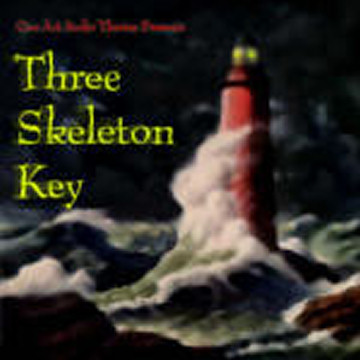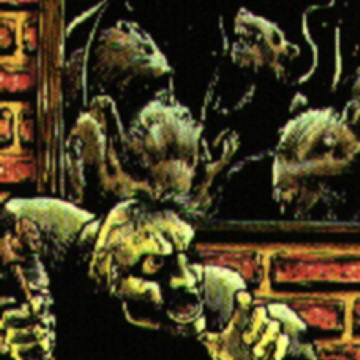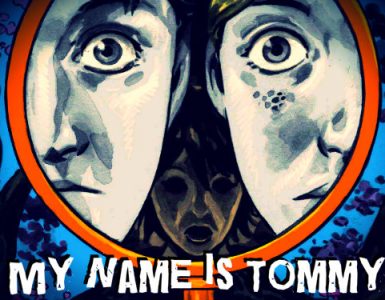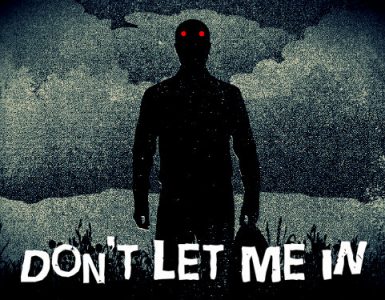Three Skeleton Key by George G. Toudouze is a classic story of terror about three men who are in a lighthouse when it is attacked by a horde of ravenous rats.

Three Skeleton Key
My most terrifying experience? Well, one does have a few in thirty-five years of service in the Lights, although it’s mostly monotonous routine work – keeping the light in order, making out the reports.
When I was a young man, not very long in the service, there was an opening in a lighthouse newly built off the coast of Guiana, on a small rock twenty miles or so from the main land. The pay was high, so in order to reach the sum I had set out to save before I was married, I volunteered for service in the new light.
Three Skeleton Key, the small rock on which the light stood, bore a bad reputation. It earned its name from the story of the three convicts who, escaping from Cayenne in a stolen dugout canoe, were wrecked on the rock during the night, managed to escape the sea but eventually died of hunger and thirst. When they were discovered, nothing remained but three heaps of bones, picked clean by birds. The story was that the three skeletons, gleaming with phosphorescent light, danced over the small rock, screaming…
But there are many such stories and I did not give the warnings of the old-timers at the Isle de Sein a second thought. I signed up, boarded ship and in a month I was installed at the light.
Picture a gray, tapering cylinder welded to the solid black rock by iron rods and concrete rising from a small island twenty-odd miles from land. It lay in the midst of the sea, this island, a small, bare piece of stone, about one hundred fifty feet long, perhaps forty wide. Small, barely large enough for a man to walk about and stretch his legs at low tide.
This is an advantage one doesn’t find in all lights, however, for some of them rise sheer from the waves, with no room for one to move save within the light itself. Still, on our island, one must be careful, for the rocks were treacherously smooth. One misstep and down you would fall into the sea – not that the risk of drowning was so great, but the waters around our island swarmed with huge sharks that kept an eternal patrol around the base of the light.

Still, it was a nice life there. We had enough provisions to last for months, in the event that the sea should become too rough for the supply ship to reach us on schedule. During the day we would work about the light, cleaning the rooms, polishing the metalwork and the lens and the reflector of the light itself, and at night we would sit on the gallery and watch our light, a twenty-thousand-candle power lantern, swing its strong, white bar of light over the sea from the top of its hundred-twenty-foot tower. Some days, when the air would be very clear, we could see the land, a threadlike line to the west. To the east, north and south stretched the ocean. Landsmen, perhaps, would soon have tired of that kind of life, perched on a small island off the coast of South America for eighteen weeks, until one’s turn for leave ashore came around. But, we liked it there, my two fellow-tenders and myself – so much so that, for twenty-two months on end with the exception of shore leaves, I was greatly satisfied with the life on Three Skeleton Key.
I had just returned from my leave at the end of June, that is to say mid-winter in that latitude, and had settled down to the routine with my two fellow-keepers, a Breton by the name of Le Gleo and the head keeper Itchoua, a Basque some dozen years or so older than either of us.
Eight days went by as usual; then on the ninth night after my return, Itchoua, who was on night duty, called Le Gleo and me, sleeping in our rooms in the middle of the tower, at two in the morning. We rose immediately and, climbing the thirty or so steps that led to the gallery, stood beside our chief.
Now, ships were a rare sight in our waters, for our light was a warning of treacherous reefs, barely hidden under the surface and running far out to sea. Consequently, we were always given s wide berth, especially by sailing vessels, which cannot maneuver readily as steamers.
No wonder that we were surprised at seeing this three-master heading dead for us in the gloom of early morning. I had immediately recognized her lines, for she stood out plainly, even at the distance of a mile, when our light shone on her.
She was a beautiful ship of some four thousand tons, a fast sailer that had carried cargoes to every part of the world, plowing the seas unceasingly. By her line she was identified as Dutch-built, which was understandable, as Paramaribo and Dutch Guiana are very close to Cayenne.
Watching her sailing dead for us, a white wave boiling her bows, Le Gleo cried outâ€
“What’s wrong with her crew? Are they all drunk or insane? Can’t they see us?â€
Itchoua nodded soberly, looked at us sharply as he remarked: “See us? No doubt-if there is a crew aboard!â€
“What do you mean, Chief?†Le Gleo had started, turned to the Basque. “Are you saying that she’s the Flying Dutchman?â€
His sudden fright had been so evident that the older man laughed:
“No, old man, that’s not what I meant. If I say there’s no one aboard, I mean she’s derelict.â€
Then we understood her queer behavior. Itchoua was right. For some reason, believing she was doomed, her crew had abandoned her. Then she had righted herself and sailed on, wandering with the wind.
The three of us grew tense as the ship seemed about to crash on one of our numerous reefs, but she suddenly lurched with some change of the wind, the yards swung around and the derelict came clumsily about and sailed dead away from us.
In the light of our lantern she seemed so sound, so strong, that Itchoua exclaimed impatiently:
“But why the devil was she abandoned? Nothing is smashed, no sign of fire – and she doesn’t sail as if she were taking water.â€
Le Gleo waved to the departing ship:
“Bon voyage!†he smiled at Itchoua and went on. “She’s leaving us, chief, and now we’ll never know what —“
“No, she’s not!†cried the Basque. “Look! She’s turning!â€
As if obeying his words, the derelict three-master stopped, came about and headed for us once more. And for the next four hours the vessel played around us – zigzagging, coming about, stopping, then suddenly lurching forward. No doubt some freak of current and wind, of which our island was the center, kept her near us.
Then suddenly, the tropic dawn broke, the sun rose and it was day and the ship was plainly visible as she sailed past us. Our light extinguished, we returned to the gallery with our glasses and inspected her.
The three of us focused our glasses on her poop, saw standing out sharply, black letters on the white background of a life-ring, the stenciled name: Cornelius de Witt, Rotterdam.
We had read her lines correctly, she was Dutch. Just then the wind rose and the Cornelius de Witt changed course, leaned to port and headed straight for us once more. But this time she was so close that we knew she would not turn in time.
“Thunder!†cried Le Gleo, his Breton soul aching to see a fine ship doomed to smash upon a reef. “She’s going to pile up! She’s gone!â€
I shook my head:
“Yes, and a shame to see that beautiful ship wreck herself. And we’re helpless.â€
There was nothing we could do but watch. A ship sailing with all sail spread, creaming the sea with her forefoot as she runs before the wind, is one of the most beautiful sights in the world – but this time I could feel the tears stinging in my eyes as I saw this fine ship headed for her doom.
All this time our glasses were riveted on her and we suddenly cried out together:
“The rats!â€
Now we knew why this ship, in perfect condition, was sailing without her crew aboard. They had been driven out by the rats. Not those poor specimens of rats you see ashore, barely reaching the length of one foot from their trembling noses to the tip of their skinny tails, wretched creatures that dodge and hide at the mere sound of a footfall.
No, these were ships’ rats, huge, wise creatures, born on the sea, sailing all over the world on ships, transferring to other, larger ships as they multiply. There is as much difference between the rats of the land and these maritime rats as between a fishing smack and an armored cruiser.
The rats of the sea were fierce, bold animals. Large, strong and intelligent, clannish and sea-wise, able to put the best of mariners of shame with their knowledge of the sea, their uncanny ability to foretell the weather.
And they are brave, the rats, and vengeful. If you so much as harm one, his sharp cry will bring hordes of his fellows to swarm over you, tear you, and not cease until your flesh has been stripped from your bones.
The ones on this ship, the rats of Holland, are the worst, superior to other rats of the sea as their brethren are to the land rats. There is a well-known tale about these animals.
A Dutch captain, thinking to protect his cargo, brought aboard his ship – not cats – but two terriers , dogs trained in the hunting, fighting and killing of vicious rats. By the time the ship, sailing from Rotterdam, had passed the Ostend light, the dogs were gone and never seen again. In twenty-four hours they had been overwhelmed, killed and eaten by the rats.
At times, when the cargo does not suffice, the rats attack the crew, either driving them from the ship, or eating them alive. And studying the Cornelius de Witt, I turned sick, for her small boats were all in place. She had not been abandoned.
Over her bridge, on her deck, in the rigging, on every visible spot, the ship was a writhing mass – a starving army coming toward us on a vessel gone mad!
Our island was a small spot in that immense stretch of sea. The ship could have grazed us, passed to port or starboard with its ravening cargo – but no, she came for us at full speed, as if she were leading the regatta at a race, and impaled herself on a sharp point of rock.
There was a dull shock as her bottom stove in, then a horrible crackling as the three masts went overboard at once, as if cut down with one blow of some gigantic sickle. A sighing groan came as the water rushed into the ship; then she split in two and sank like a stone.
But the rats did not drown. Not these fellows! As much at home in the sea as any fish, they formed ranks in the water, heads lifted, tails stretched out, paws paddling. And half of them, those from the forepart of the ship, sprang along the masts and onto the rocks in the instant before she sank. Before we had time even to move, nothing remained of the three-master save some pieces of wreckage floating on the surface and an army of rats covering the rocks left bare by the receding tide.
Thousands of heads rose, felt the wind and we were scented, seen! To them, we were fresh meat, after possible weeks of starving. There came a scream, composed of innumerable screams, sharper than the howl of a saw attacking a bar of iron, and in the one motion, every rat leaped to attack the tower!
We barely had time to leap back, close the door leading to the gallery, descend the stairs and shut every window tightly. Luckily the door at the base of the light, which we never could have reached in time, was of bronze set in granite and was tightly closed.
The horrible band, in no measurable time, had swarmed up and over the tower as if it had been a tree, piled on the embrasures of the windows, scraped at the glass with thousands of claws, covered the lighthouse with a furry mantle, and reached the top of the tower, filling the gallery and piling atop the lantern.
Their teeth grated as they pressed against the glass of the lantern room, where they could plainly see us, though they could not reach us. A few millimeters of glass, luckily very strong, separated our faces from their gleaming, beady eyes, their sharp claws and teeth. Their odor filled the tower, poisoned our lungs, and rasped our nostrils with a pestilential, nauseating smell. And there we were, sealed alive in our own light, prisoners of a horde of starving rats.
That first night, the tension was so great that we could not sleep. Every moment, we felt that some opening had been made, some window given away, and that our horrible besiegers were pouring through the breach. The rising tide, chasing those of the rats which had stayed on the bare rocks, increased the numbers clinging to the walls, piled o the balcony – so much so that clusters of rats clinging to one another hung from the lantern and the gallery.
With the coming of darkness we lit the light and the turning beam completely maddened the beasts. As the light turned, it successively blinded thousands of rats crowded against the glass, while the darkside of the lantern room gleamed with thousands of points of light, burning like the eyes of jungle beasts in the night.
All the while we could hear the enraged scraping of claws against the stone and glass, while the chorus of cries was so loud that we had to shout to hear one another. From time to time, some of the rats fought among themselves and a cluster would detach itself, falling into the sea like a ripe fruit from a tree. Then we would see phosphorescent streaks as triangular fins slashed the water – sharks, permanent guardians of our rock, feasting on our jailers.
The next day we were calmer, and amused ourselves teasing the rats, placing our faces against the glass which separated us. They could not fathom the invisible barrier which separated them from us, and we laughed as we watched them leaping against the heavy glass.
But the day after that, we realized how serious our position was. The air was foul; even the heavy smell of oil within our stronghold could not dominate the fetid odor of the beasts massed around us. And there was no way of admitting fresh air without also admitting the rats.
In the morning of the fourth day, at early dawn, I saw the wooden framework of my window, eaten away from the outside, sagging inward. I called my comrades and the three of us fastened a sheet of tin in the opening, sealing it tightly. When we had completed the task, Itchoua turned to us and said dully:
“Well – the supply boat came thirteen days ago, and she won’t be back for twenty-nine.†He pointed at the white metal plate sealing the opening through the granite. “If that gives way†– he shrugged – “they can change the name of this place to Six Skeleton Key.â€
The next six days and seven nights, our only distraction was watching the rats whose holds were insecure fall a hundred and twenty feet into the maws of the sharks – but they were so many that we could not see any diminution in their numbers.
Thinking to calm ourselves and pass the time, we attempted to count them, but we soon gave up. They moved incessantly, never still. Then we tried identifying them, naming them.
One of them, larger than the others, who seemed to lead them in their rushes against the glass separating us, we named “Neroâ€; and there were several others whom we had learned to distinguish through various peculiarities.
But the thought of our bones joining those of the convicts was always in the back of our minds. And the gloom of our prison fed these thoughts, for the interior of the light was almost completely dark, as we had to seal every window in the same fashion as mine, and the only space that still admitted daylight was the glassed-in lantern room at the very top of the tower.
Then Le Gleo became morose and had nightmares in which he would see the three skeletons dancing around him, gleaming coldly, seeking to grasp him. His maniacal, raving descriptions were so vivid that Itchoua and I began seeing them also.
It was a living nightmare, the raging cries of the rats as they swarmed over the light, mad with hunger; the sickening, strangling odor of their bodies –
True, there is a way of signaling from lighthouses. But to reach the mast on which to hang the signal we would have to go out on the gallery where the rats were.
There was only one thing left to do. After debating all of the ninth day, we decided not to light the lantern that night. This is the greatest breach of our service, never committed as long as the tenders of the light are alive; for the light is something sacred, warning ships of danger in the night. Either the light gleams, a quarter hour after the sun goes down, or no one is left alive to light it.
Well, that night, Three Skeleton Light was dark, and all the men were alive. At the risk of causing ships to crash on our reefs, we left it unlit, for we were worn out – going mad!
At two in the morning, while Itchoua was dozing in his room, the sheet metal sealing his window gave way. The chief had just time enough to leap to his feet and cry for help, the rats swarming over him.
But Le Gleo and I, who had been watching from the lantern room, got to him immediately, and the three of us battled with the horde of maddened rats which flowed through the gaping window. They bit, we struck them down with our knives – and retreated.
We locked the door of the room on them, but before we had time to bind our wounds, the door was eaten through, and gave way and we retreated up the stairs, fighting off the rats that leaped on us from the knee-deep swarm.
I do not remember , to this day, how we managed to escape. All I can remember is wading through them up the stairs, striking them off as they swarmed over us; and then we found ourselves, bleeding from innumerable bites, our clothes shredded, sprawled across the trapdoor in the floor of the lantern room – without food or drink. Luckily, the trapdoor was metal set into the granite with iron bolts.
The rats occupied the entire light beneath us, and on the floor of our retreat lay some twenty of their fellows, who had gotten in with us before the trapdoor closed, and whom we had killed with our knives. Below us, in the tower, we could hear the screams of the rats as they devoured everything edible that they found. Those on the outside squealed in reply, and writhed in a horrible curtain as they stared at us through the glass of the lantern room.
Itchoua sat up, stared silently at his blood trickling from the wounds on his limbs and body, and running in thin streams on the floor around him. Le Gleo, who was in as bad a state (and so was I, for that matter), stared at the chief and me vacantly, started as his gaze swung to the multitude of rats against the glass, then, suddenly began laughing horribly:
“Hee! Hee! The Three Skeletons! Hee! Hee! The Three Skeletons are now six skeletons! Six skeletons!â€
He threw his head back and howled, his eyes glazed, a trickle of saliva running from the corners of his mouth and thinning the blood flowing over his chest. I shouted to him to shut up, but he did not hear me, so I did the only thing I could do to quiet him – I swung the back of my hand across his face.
The howling stopped suddenly, his eyes swung around the room, then he bowed his head and began weeping softly, like a child.
Our darkened light had been noticed from the mainland, and as dawn was breaking the patrol was there, to investigate the failure of our light. Looking through my binoculars, I could see the horrified expression on the faces of the officers and crew when, the daylight strengthening, they saw the light completely covered by a seething mass of rats. They thought, as I afterward found out, that we had been eaten alive.
But the rats had also seen the ship, or had scented the crew. As the ship drew nearer, a solid phalanx left the light, plunged into the water and, swimming out, attempted to board her. They would have succeeded, as the ship was hove to, but the engineer connected his steam to a hose on the deck and scalded the head of the attacking column, which slowed them up long enough for the ship to get underway and leave the rats behind.
Then the sharks took part. Belly up, mouths gaping, they arrived in swarms and scooped up the rats, sweeping through them like a sickle through wheat. That was one day that sharks really served a useful purpose.
The remaining rats turned tail, swam to the shore and emerged dripping. As they neared the light, their comrades greeted them with shrill cries, with what sounded like a derisive note predominating. They answered angrily and mingled with their fellows. From the several tussles that broke out, it seemed as if they resented being ridiculed for their failure to capture the ship.
But all this did nothing to get us out of our jail. The small ship could not approach, but steamed around the light at a safe distance, and the tower must have seemed fantastic, some weird, many-mouthed beast hurling defiance at them.
Finally, seeing the rats running in and out of the tower through the door and the windows, those on the ship decided that we had perished and were about to leave when Itchoua, regaining his senses, thought of using the light as a signal.He lit it and, using a plank placed and withdrawn before the beam to form the dots and dashes, quickly sent out our story to those on the vessel.
Our reply came quickly. When they understood our position, how we could not get rid of the rats, Le Gleo’s mind going fast, Itcoua and myself covered with bites, cornered in the lantern room without food or water, they had a signalman send us their reply.
His arms swinging like those of a windmill, he quickly spelled out:
“Don’t give up, hang on a little longer! We’ll get you out of this!â€
Then she turned and steamed at top speed for the coast, leaving us little reassured.
She was back at noon, accompanied by the supply ship, two small coast guard boats, and the fireboat – a small squadron. At twelve-thirty the battle was on.
After a short reconnaissance, the fireboat picked her way slowly through the reefs until she was close to us, then turned her powerful jet of water on the rats. The heavy stream tore the rats from their places, hurled them screaming into the water where the sharks gulped them down. But for every ten that were dislodged, seven swam ashore, and the stream could do nothing to the rats within the tower. Furthermore, some of them, instead of returning to the rocks, boarded the fireboat and the men were forced to battle them hand-to-hand. They were true rats of Holland, fearing no man, fighting for the right to live!
Nightfall came, and it was as if nothing had been done, the rats were still in possession. One of the patrol boats stayed by the island; the rest of the flotilla departed for the coast. We had to spend another night in our prison. Le Gleo was sitting on the floor, babbling about skeletons; and as I turned to Itchoua, he fell unconscious from his wounds. I was in no better shape and could feel my blood flaming with fever.
Somehow the night dragged by, and the next afternoon I saw the tug, accompanied by the fireboat, come from the mainland with a huge barge in tow. Through my glasses, I saw the barge was filled with meat.
Risking the treacherous reefs, the tug dragged the barge as close to the island as possible. To the last rat, our besiegers deserted the rock, swam out and boarded the barge reeking with the scent of freshly cut meat. The tug dragged the barge about a mile from shore, where the fireboat drenched the barge with gasoline. A well placed incendiary shell from the patrol boat bombarded them with shrapnel from a safe distance, and the sharks finished off the survivors.
A whaleboat from the patrol boat took us off the island and left three men to replace us. By nightfall we were in the hospital in Cayenne. What became of my friends?
Well, Le Gleo’s mind had cracked and he was raving mad. They sent him back to France and locked him up in an asylum, the poor devil. Itchoua died within a week; a rat’s bite is dangerous in that hot humid climate, and infection sets in rapidly.
As for me – when they fumigated the light and repaired the damage done by the rats, I resumed my service there. Why not? No reason why such an incident should keep me from finishing out my service there, is there?
Besides – I told you I liked the place – to be truthful, I’ve never had a post as pleasant as that one, and when my time came to leave it forever, I tell you that I almost wept as Three Skeleton Key disappeared below the horizon.
The End.







well this story lost my interest during the 3rd paragraph, but anyway i can’t believe this story is 10 years old! Damn sfk how old is this website lol
I Read This Story In School , Btw I’m New Here .. Just Made An Account But I’ve Been Coming Here Too Read Stories For A Long Time :)
we read this story in school.
a good story but rats?gross